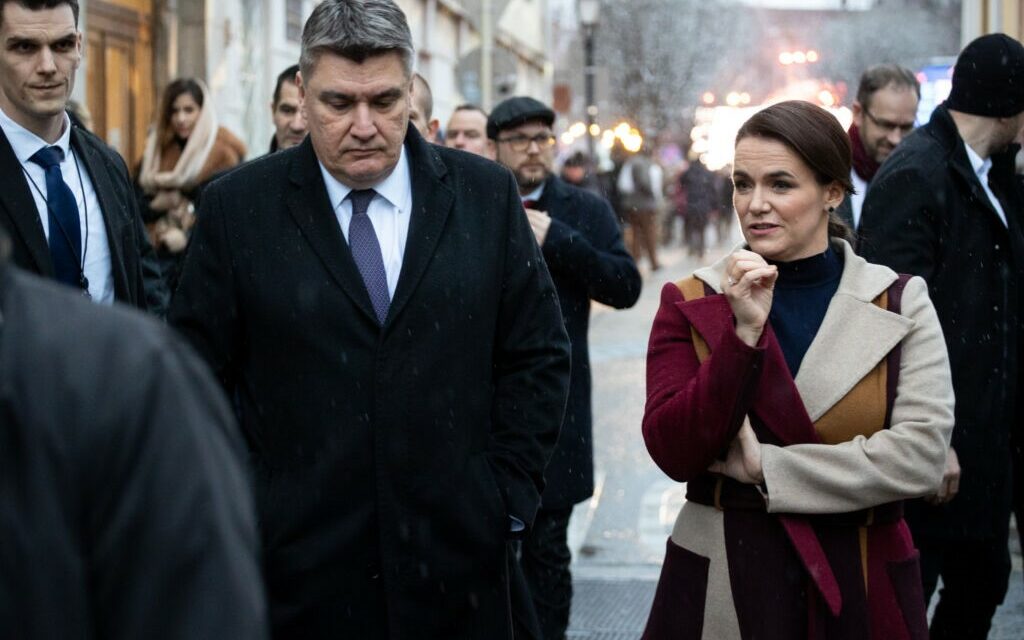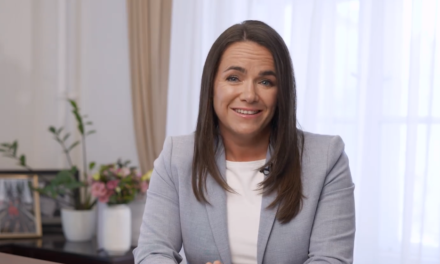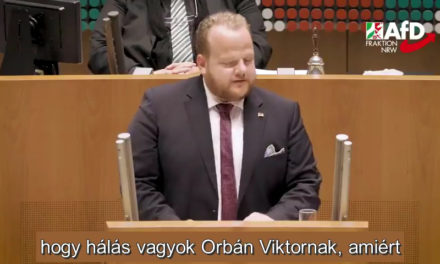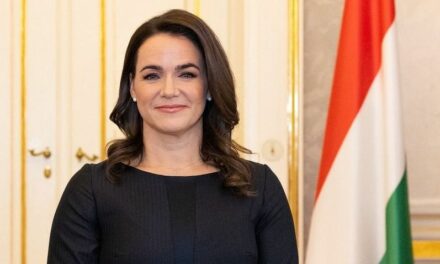The cradle of culture is also the family, the Hungarian culture and the European culture, which is rooted in the family - emphasized President Katalin Novák at the official opening of the Veszprém-Balaton 2023 European Capital of Culture (ECF) program in Veszprém on Saturday.
We, Hungarians, are still building without breaking a sweat. We know that we must not only preserve, protect, and pass on what our ancestors left us as a legacy, but also increase it.
Katalin Novák emphasized.
That's why two hundred new churches were built in the last decade, the Opera House, the Museum of Fine Arts, the two Vigadós flourish in their old glory, and that's why country castles and castles were renovated. That is why we are creating a new one with the House of Hungarian Music, the Museum of Ethnography or the Debrecen Csokonai Forum. This is why we are restoring Buda's Castle District and why we are creating community spaces even in the smallest settlements - the head of state listed the examples. As he said, all that is needed for this is the one who hands it over and the one who takes over the rich inheritance.
The family is also the cradle of culture. Hungarian culture and European culture. European culture is also rooted in the family. We are living in dire times, epidemics, natural and economic calamities, and wars want to stand in the way of life, they want to put an end to growth, they want to deprive us of security, they want to tear away hope from us - emphasized Katalin Novák. He emphasized: however, life demands a way for itself, babies are born in shelters, despite rising prices, there is a fierce struggle for a better life, artists do not stop creating.
Culture gives life and hope. It can relieve pain, dissolve fear, and help reconciliation. It reminds us that we don't just have to survive, we have to live, he said. He drew attention to the fact that when we celebrate Hungarian culture, we are not trying to present some isolated, strange formation to Europe. In particular, we celebrate the universal, the common European culture. He added: that is why the President of the Republic of Croatia, who came as a guest, can be with us today, since Croatian and Hungarian culture are connected by a thousand threads. The works of people such as Miklós Zrínyi, Miroslav Krleza, Fausztusz Verancsics, Manuel Strlek or even our common king, Kálmán Könyves, express the Central European cultural richness that goes beyond politics and the economy and is the foundation of our strategic alliance.
We celebrate together in the conviction that Europe needs us at least as much as we need a strong Europe of nations, much stronger than today. And we also need the others, the peoples and nations of the Balkans, with whom we have suffered in a common fate for centuries - emphasized Katalin Novák. He emphasized: even if we were each other's opponents at times, today we work together for mutual benefits. Hungary is fighting for them to belong to our common Europe not only in spirit, culture, and sense of life, but also in a legal and economic sense. The unification is not a merger, we carry on, keep and increase the legacy of our predecessors, enriching Europe. The President of the Republic emphasized that in Europe, in addition to the Germans, French, Italians, Scandinavians, Central Europeans, Croatians and Hungarians, there is also a place for the people and culture of Serbs, Montenegrins, Kosovars, North Macedonians, Albanians and Bosnia-Herzegovina. Each nation has an independent voice, a specific sound, but harmony can be perfect together with them.
Especially if we know that the conductor is not in Brussels, not even among us, but somewhere above us, in the sky.
Veszprém, the Cultural Capital of Europe, presents the strange and the common not only in its history, but also in its present: its queens brought Europe, they brought the world of the Hungarians to other European countries - he said, adding: Christianity, the culture-creating power of the Archdiocese of Veszprém has always been from universal divine and human values fed.
This is how we are Hungarians, Europeans and Central Europeans, Christians and custodians of universal human values: people who want to live their lives in families and as proud residents of their own city, region, and country, said Katalin Novák. The President of the Republic reminded that, in addition to the opening of the European Capital of Culture program in Veszprém, we are also celebrating the eve of the Day of Hungarian Culture, the 200th anniversary of the birth of our national prayer. He added: Kölcsey's poem, the Anthem, written in the small village of Szatmári, really only resonates in the Hungarian soul, with which we celebrate our victories, mourn our defeats, express our hope for a better future together, and even say goodbye to our great dead.
Source: Vasárnap.hu
Photo: Szennyes Krisztián/Vasarnap.hu













